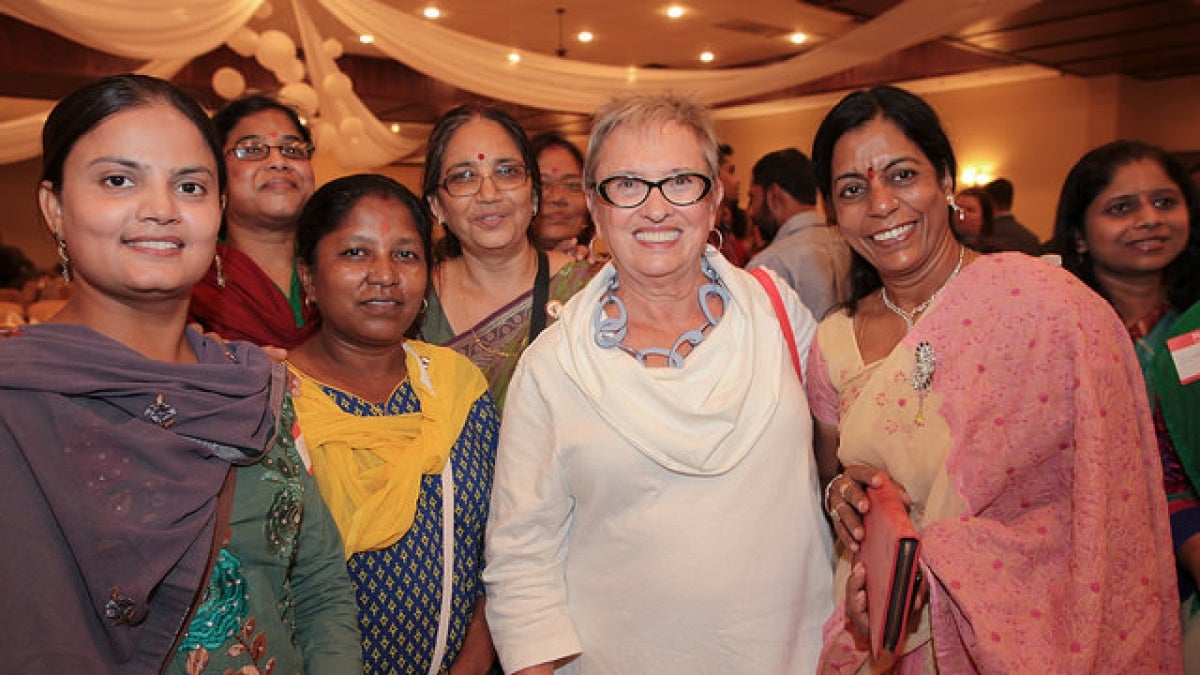Local India community eases transition for teacher educators

As the relationship grows between Mary Lou Fulton Teachers College and its India partners, at home and abroad, so does the educational benefit to school-aged children in the world’s most populous democracy.
This semester, Arizona State University’s education college welcomed its second cohort of Indian teacher educators in an event-filled week designed to make them feel instantly at home, as they study ways to improve inclusion and gender equity and increase professional performance in their own communities.
The yearlong project, called India Support for Teacher Education Program (In-STEP), is funded by a $4.3 million grant from the U.S. Agency for International Development (USAID) and U.S. Department of State. Teachers College is also collaborating closely with India’s Ministry for Human Resources Development (MHRD) to implement the program.
In fall 2013, 53 teacher educators from India spent a semester immersed in ASU’s world-class teacher preparation program. This year’s cohort of 57 participants is experiencing a refined In-STEP curriculum based on a lengthy review of the program by Teachers College and MHRD, according to Ara Barsam, Teachers College assistant dean of research and global initiatives.
“In true partnership with a team of academics from India’s MHRD, we tuned the curriculum directly to the needs of the 57 participants who are here,” he said. “It still involves visits to local K-12 schools and understanding our teacher preparation program. But it also involves a greater emphasis on issues of inclusion and gender equity, a deeper probing into issues of philosophy in education, and a greater focus on professional development in content areas.”
Essential to the success of the In-STEP program is the blossoming relationship between Teachers College and the local Indo-American community – one of the fastest-growing populations in Maricopa County and among students and faculty at ASU. Mari Koerner, dean of Teachers College, praised local Indian leaders for their red-carpet treatment of In-STEP participants, which included a welcome event where she was invited to speak.
“This growing partnership between Teachers College and the local Indian community illustrates perfectly how we can impact global education when we work together,” she explained. “Taking the best of both worlds, we can equip educators, teacher educators and education leaders with the tools and expertise they need to enable students everywhere to reach their full potential.”
Koerner said the college’s worldwide mission is embodied in its newly announced Center for Advanced Studies in Global Education. The center will enable ASU’s nationally honored education college to extend its pursuit of the highest standards for teaching, discovery and innovation to a global audience. It also will join Teachers College with other ASU academic units having global agendas to develop shared projects involving PreK-12 and higher education audiences.
According to Kalpana Batni, vice president of the Indo-American Cultural and Religious Foundation of Arizona, many of the teacher educators in the In-STEP program come from remote parts of India. The foundation hosted the welcome dinner supported by its sister associations, including India Association of Phoenix.
Batni said that connecting with the local Indian community helps teacher educators acclimate more quickly to the U.S. so they can focus on their ASU studies. The newcomers not only meet Indians who speak their particular language, but also share their same cultural interests, such as music, dance and religious festivals, including the Navratri and Diwali celebrations happening this fall. The Indo-American community even connects the students with local Indian physicians if they require medical advice.
“Last year, they really felt very much at home, and it was a good start, a good beginning for the program,” Batni explained. “The students were reassured that they were not here alone in a strange country. They did have a huge support system, if need be, that they could fall back on.”
For the Indo-American community, reaching out to In-STEP teacher educators is also satisfying, said Sarup Mathur, Teachers College associate professor who shares oversight of the In-STEP project. At the recent welcome dinner, Indian leaders noted there are currently 230 million school children in India.
“They feel this is a valuable contribution to India in the sense that these teacher educators are going to go back and touch the lives of so many teachers who, in turn, will touch so many children’s lives,” Mathur said.
Newly arrived In-STEP participant Shweta Sharma is an education technology lecturer in Bhopal, capital of the Indian state of Madhya Pradesh. She believes she is off to a good start at ASU. “The support of the local Indo-American community gives us an at-home feeling,” she said. “We won’t miss our festivals.”
Written by Judy Crawford